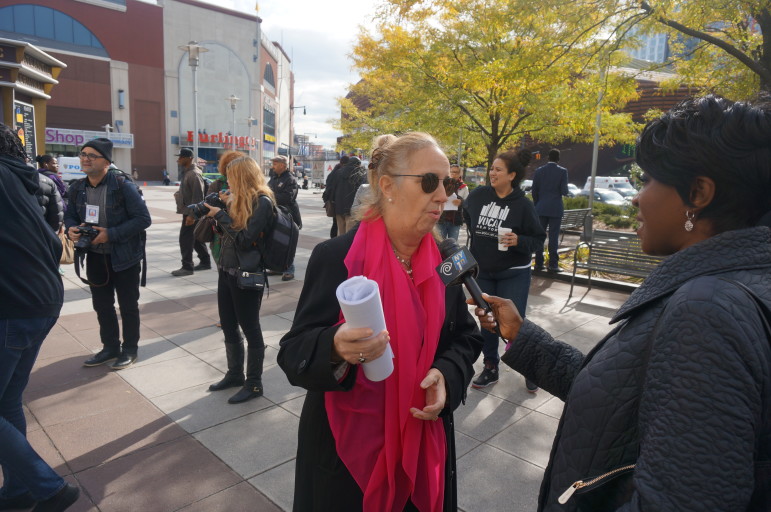
Manhattan Beep
Manhattan Borough President Gale Brewer.
Manhattan Borough President Gale Brewer on Friday recommended approval of Mayor de Blasio’s Mandatory Inclusionary Housing plan after the administration agreed to address a range of concerns about the proposal.
Brewer, however, recommended a “no” vote on City Hall’s second major bid for changes to zoning rules, called “Zoning for Quality and Affordability.”
Both zoning proposals are key parts of the mayor’s affordable housing plan, which aims to build or preserve 200,000 units over 10 years.
Each has met with a wave of opposition at community boards: According to a tally maintained by CityLand, 50 boards have voted to disapprove the Zoning for Quality and Affordability proposal (known as “ZQA”), while only six have voted to approve it. Three have yet to vote.
The Mandatory Inclusionary Housing proposal (or MIH) has fared only slightly better, with 43 boards voting to disapprove it and only 10 voting to approve; four haven’t voted, one took no position and one split over the measure.
The mandatory inclusionary housing proposal would require developers who take advantage of the increased density facilitated by a rezoning to create a set percentage of income-targeted apartments. The ZQA proposal concerns changes to height, setback and design requirements that the administration says are needed to facilitate affordable-housing development.
Each no vote has been related to neighborhood-specific concerns, but MIH has sparked worries that the envisioned rezonings would spark gentrification and displacement that dwarf the affordable housing created. Boards worried that ZQA would alter neighborhood character.
Brewer’s borough board issued a conditional “no” against both MIH and ZQA last week. Her recommendation on Friday for approval of MIH came after the city agreed to address many of those concerns.
According to a letter Brewer made public from the Department of City Planning (DCP), in many cases the administration committed not to a new policy, per se, but rather to discussing or considering changes to its approach.
“In response to concerns from the [borough president] and other stakeholders that [inclusionary housing] options with average [area median incomes] are not responsive to local needs, DCP will work with [the Department of Housing Preservation and Development] to tailor a housing strategy for these neighborhoods with the BP and other stakeholders to address local housing needs,” the letter reads.








